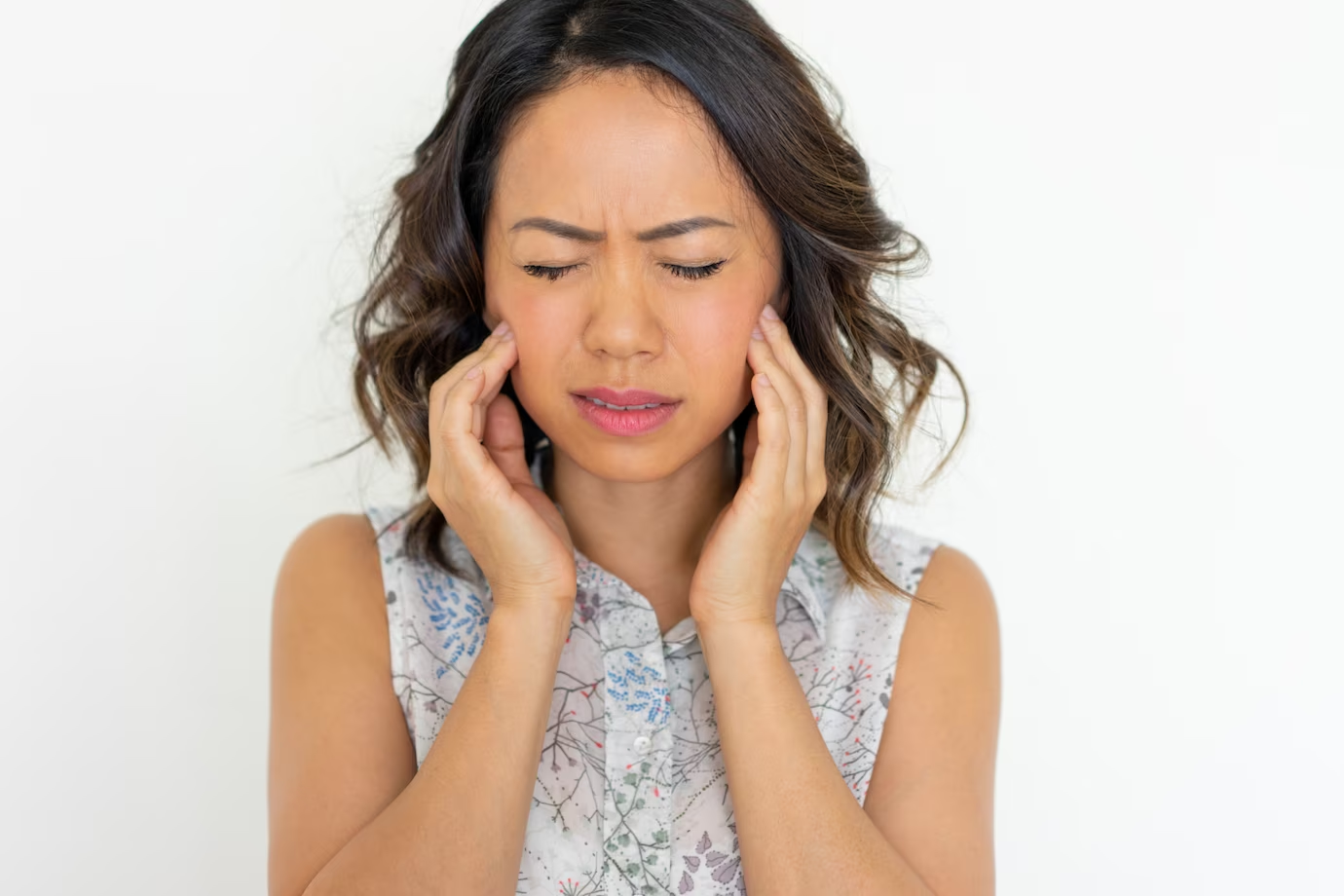There is nothing more discomforting than waking up with a headache, having a poor night sleep and feeling low in energy throughout the day.
Temporomandibular Joints (TMJ) are hinging joints that connects both sides of lower jaw to the temporal bones on either side of the skull. You can feel these joints if you place your fingers in front of your ears. These joints, along with several muscles, allow the mandible to move up and down, side to side, and forward and back. When the mandible and the joints are properly aligned, smooth muscle actions, such as chewing, talking, yawning, and swallowing, can take place.
Dysfunction with the TMJ can be extremely painful to live with, it can affect the quality of our sleep and the quality of our daily life. Temporomandibular disorders (TMD) are disorders of the jaw muscles, temporomandibular joints, and the nerves associated with chronic facial pain. Any problem that prevents the complex system of muscles, bones, and joints from working together in harmony may result in temporomandibular disorder.

TMD can be classified as:
- Myofascial pain- discomfort or pain within the muscles that control the jaw neck and shoulder function.
- Internal derangement of the joint- dislocation of the jaw, displaced disc or injury to the condyle
- Degenerative joint disease – including osteoarthritis or rheumatoid arthritis in the jaw joint
The true cause of TMD is unclear, but it is believed to have various clinical, psychological, sensory, genetic, and nervous system factors that may put a person at higher risk of developing chronic TMD.
Common symptoms of Temporomandibular disorders (TMD) include:
- Facial muscle pain/ tenderness
- Jaw pain/ discomfort – prevalent in the mornings
- Headaches
- Jaw locking
- Jaw clicking / popping
- Limited jaw movements
- Radiating pain behind the eyes, within the face, shoulders, neck and/or back
- Earaches or ringing of the ear
- Clenching or grinding of teeth
- Fatigue
No two individuals with TMD experience the same pain symptoms. The intensity of pain can vary from mild to severe. TMD pain is typically most intense when chewing or walking up in the morning and is felt as discomfort of the jaw but can radiate to the head neck and shoulders causing migraines. If you believe you suffer from any of the symptoms of TMD consult with your dentists to ensure an appropriate diagnosis and management can be tailored to your individual needs.
If you present to the dentist with signs of TMD a thorough medical and dental history will be taken, your jaw, facial muscles, soft tissues and teeth will be examined clinically to determine an accurate diagnosis of your symptoms. You may also have xrays taken to look at your jaws, TMJ and teeth to rule out any other problems. Depending on the complexity of your case, your dentist may direct you to a specialist in the area for further care and treatment.

